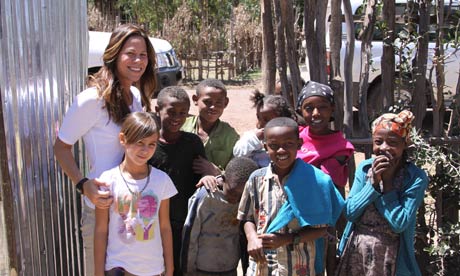 It would seem that a new addition can be made to the the ever-expanding world of poverty and slum tourism. The following article in English newspaper the Guardian discusses package tours that are organised by NGOs and labels it as “Donor Tourism”.
It would seem that a new addition can be made to the the ever-expanding world of poverty and slum tourism. The following article in English newspaper the Guardian discusses package tours that are organised by NGOs and labels it as “Donor Tourism”.
It provides a discussion of the reasons why (international) NGOs seem to have started to actively use specialist travel agencies to organise group donor trips to poverty stricken areas. In the end they note “development agencies realise that to build lasting connections between donors and their beneficiaries, increasingly the donor needs to get something back”.
This is an interesting observation as it suggests donors are more and more seen as clients that have a right to expect something back rather than supporting relief organisations on a more intrinsic altruistic basis. The article also reflects on the worries of those working in emergency relief who in general appear to be unhappy with “Donor tourism”. A further critical discussion is given by Matt Muspratt on his Blog, where he highlights the dangers of such tours for further emphasising people’s gaze of Africa as that of a charity case. As Chimamanda Adichie so eloquently points out such a single narrative can create incomplete stereotypes of impoverished areas and rob people of dignity.
Given this critique, it will be interesting to see how “Donor Tourism” develops and to what extend it will establish itself as a new form of poverty or slum tourism.